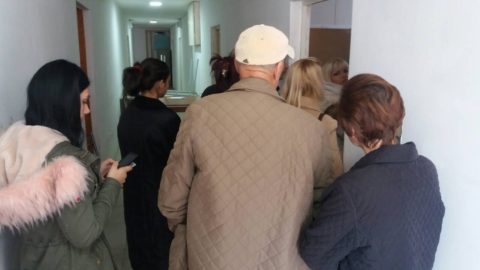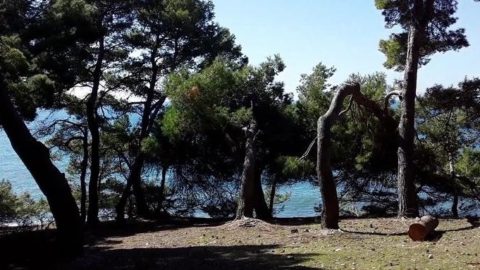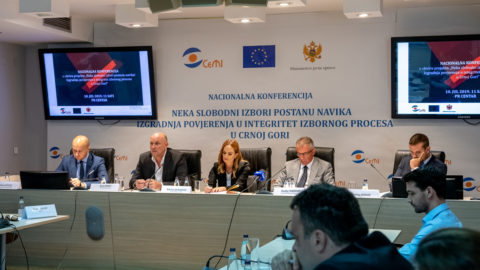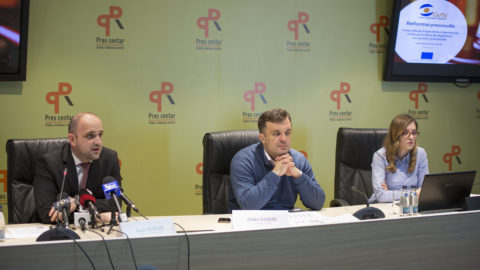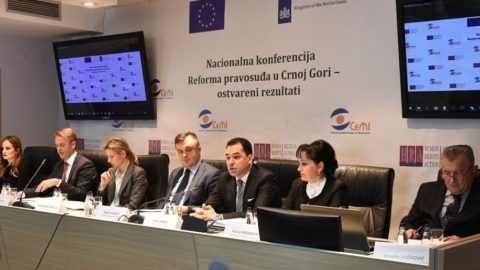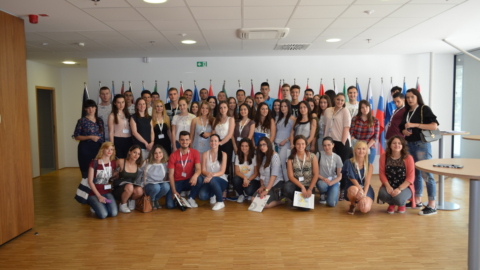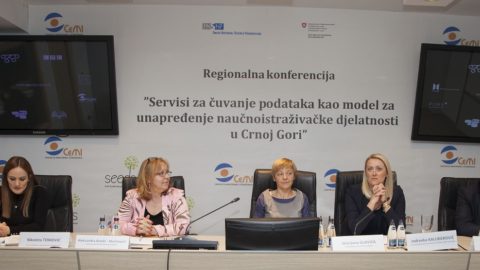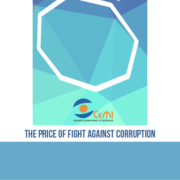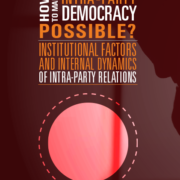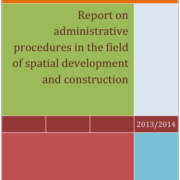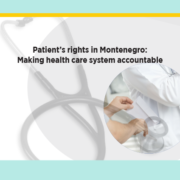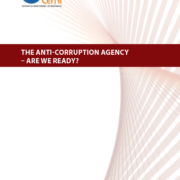Snail-like leaders
Montenegro’s EU accession prospects: In between simulating reforms and EU’s inability to enlarge
Dusko Marković’s Government celebrated its three-year anniversary by giving itself a clear A for the progress that it achieved in the previous period. Marković, the current Prime Minister of Montenegro and the deputy head of the ruling Democratic Party of Socialists (DPS), has been in one way or another in positions of power his whole career. Therefore, even him and the ones around him who understand the real situation within the EU accession process, can see that Montenegro, even given the title of the “leader in the region” is now an actor of one of the longest enlargement negotiations in the history of the EU. The main question is, will this fact result in much needed in-depth reforms or in a blame game whereby the EU and its leaders are seen as unwilling to fulfill the Thessaloniki promises from 2003?
Approximately one month after Marcron’s “non” to opening of the negotiations with Albania and North Macedonia, Montenegrin think tank CEDEM came out with the results of its Political public opinion poll of Montenegro[1]. The poll showed 46.2 % of Montenegrin citizens believe that Montenegro is going on the wrong track. This is in contrast to the poll done in September of 2012, months after negotiations with the EU officially began, which showed that 32.5% of citizens believe that the country is on a bad track. The common EU related enthusiasm among Montenegrin citizens decreased from considerable 70.4% in December 2011 to 55% of citizens supporting Montenegro’s EU membership in 2019.
There are two ways that those close to the Government justify this trend. The first one is that the drop in the support is a natural occurrence within the EU accession and would use Croatia as a leading example. This argument doesn’t take into account specificity of Montenegro’s position and issues with reforms that Croatia did not have. It is not enough to state that this is a natural happening without taking into account that many in Montenegro are disappointed that the EU was not able to take more radical steps to prevent the political seizure of the Public Broadcaster RTCG or to impede the political interference in the work of the Agency for Anti-Corruption (ASK). Without visible measures Montenegrin public cannot see the impact of the EU’s soft power and it views realpolitik through different lenses than EU civil servants or EU political elites.
The EU has been unwelcoming to the idea of even introducing the balance clause in the accession conversation, which was a plea from major actors within Montenegrin civil society. Several CSOs which because of this line of argumentation became targets of national papers and the Montenegrin president argued that: “Montenegrin Government masterfully applies the exhaustion strategy to the process of European integration, abusing the EU’s need for a new integration optimism”.[2] The EU did “step up the game” with the latest EC non paper regarding the situation in Chapters 23 and 24 for Montenegro. Within this document the EC raises concerns about allocation of loans and apartments to members of the judiciary and possible influences it creates, politicization of the Agency for Anti-Corruption and Public broadcaster but also about the third mandate of the Supreme Court President, which in the eyes of many in Montenegro is unconstitutional. However, the response of the Montenegrin authorities was focused on disputing some of the EC claims publicly, which is an indicator on future EU – Montenegro relations in the terms of the power of EU’s conditionality.
Unfortunately, the EU’s capability to successfully apply enlargement policy instruments and come to positive outcomes in the Western Balkans has been rather questionable. Among the four EU candidate countries in the region (Albania, Montenegro, Serbia, North Macedonia), Montenegro is seen as one of the “frontrunners”. However, in its Strategy for the Western Balkans from 2018, European Commission stressed that there were elements of state capture in all these countries. This naturally leads to questioning the EU’s efforts from 2003 to 2018 regarding its capability not only to set up frameworks with the aim to change the environment in these countries but to actually fully transform the political and legal systems.
The exhaustion strategy mentioned previously has planted seeds widely used as a source of justification for the lack of progress. Macron’s need to present himself as a natural leader within the EU and his use of European Council’s decision on giving a date for the start of membership talks with North Macedonia and Albania gave the perfect excuse to other Balkan leaders to put in motion the narrative of divided Europe. Even though Macron’s remarks are still not translated into potential policies and some of his ideas can improve the process of EU accession, his abrupt ‘no’ can still be used by the Montenegrin political elites to play the “blame game”. Having in mind the political monopoly that the DPS has in Montenegro after the dismissal of neutral editors and directors from RTCG and critically oriented RTCG council members, and ties with major newspapers and local public broadcasters it would not be difficult to create a narrative in which EU’s internal issues are to blame for Montenegro’s lack of progress in the accession process. This would be a natural continuation of an already established narrative that the EU is behaving as a colonial power when it comes to “meddling” in internal issues such as media freedoms already established by Montenegrin President Milo Đukanović through various public statements.
There is a pattern of missed opportunities within the accession process of Western Balkans and EU’s inability to seize the opportunity to anchor the region to itself. This often results in opening the space for third parties (China, Russia, Turkey) and projection of their ideas on how the region should look like. Political elites in the Western Balkans, and especially in Montenegro, have learned that enhanced interest of third parties in the region makes the EU more open to political bargaining. This way the ruling elites can benefit from EU funding, political support or PR stunts that would enable them to gain more political power on the national level. This comes without paying the high political price such as rule of law reforms which could inevitably touch upon their monopoles of power.
Both of these possibilities damage EU’s most powerful instrument within the accession process which is conditionality. If the EU is not willing to use its instruments to the fullest this would be a clear message to the local political elites that they can bend the rules to their liking and that the political cost of this would be low. Additionally, the support for the EU membership within the Montenegrin public could continue suffer. This could be due to possibility of identification of the EU with the status quo in the country, if the EU’s pressure on political elites is seen as weak or non-functional. On the other side, Macron’s approach could also hurt the EU’s conditionality as conditionality functions only when the prize, meaning the membership, is attainable upon implementing a set of requirements and conditions which was not the case with North Macedonia and Albania.
When it comes to Montenegro, both strategies would eventually backfire on the ruling DPS and Montenegro’s position as frontrunner. Due to certain level of stabililization and normalization within the other countries in the region, and the EU’s focus on supporting regional initiatives such as “Mini-Schengen”, Montenegro would soon be found isolated and stripped from its leadership title. Therefore, Montenegrin authorities need to fully focus on reforms within the rule of law and prevent further political interference in independent institutions such as ASK and RTCG. Additionally, having in mind its capacities to fully implement the EU acquis, the Government of Montenegro does not have the luxury to create GONGOs or wage wars with well-established critically oriented civil society organizations. The resources and capacities of all stakeholders should be united in order to prove to all European member states that Montenegro does deserve membership. However, the time for this is now while the focus of the EU is still on the region. The near future brings important elections in France, a new chancellor in Germany, new US elections and a possible new wave of the migrant crisis. The time window is therefore short.
This article is a result of the project “Evolving or revolving: Institutional reforms and democratic legitimacy in Kosovo, Albania, and Montenegro”, implemented by Democracy for Development, European Movement Albania, and Centre for Monitoring and Research, which is supported by the European Fund for the Balkans, a joint initiative of the Robert Bosch Foundation, the ERSTE Foundation and the King Baudouin Foundation through “Think and Link- Regional Policy Programme”.
Rados Musovic is a Montenegrin civil society activist. He has been involved in working with civil society organizations in Western Balkans and Turkey within EU TACSO 2 and CRNVO on building CSOs capacities to be effective change -makers in their societies thus contributing to the European integration processes of their respected countries. Additionally, he focuses on project management and community development within the UK’s third sector. Rados is a lecturer within the Advance program in European Law and Economics at the Riga Graduate School of Law. He is a permanent member of the EU-Montenegro Joint Technical Committee in the European Economic and Social Committee. He holds an MSc in International and European Politics from the University of Edinburgh, a BSc in Journalism from the University of Montenegro and a PG certificate in European
Law and Economics from RGSL.
[1] http://www.cedem.me/en/programmes/empirical-research/politacal-public-opinion/send/33-political-public-opinion/1956-political-public-opinion-poll-december-2019
[2] http://www.crnvo.me/sites/crnvo/files/article_files/montenegro_-_reform_leader_or_reform_simulacrum.pdf


 Montenegrin
Montenegrin